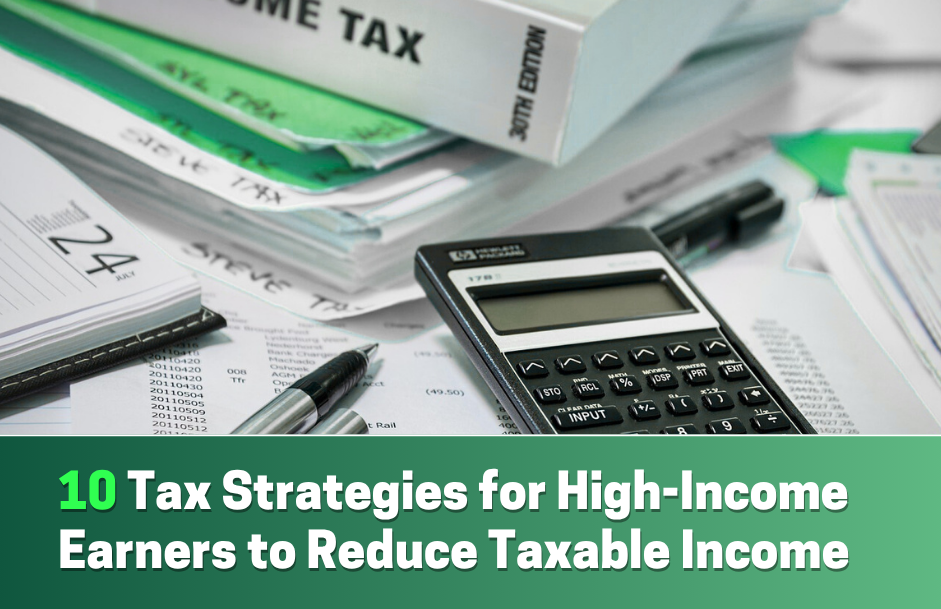
Last month, we discussed some of the most common and important financial planning considerations during your 50s. As outlined in that article, for many workers, their 50s represent the last opportunity to implement new strategies, with a sufficient time horizon to substantially impact retirement readiness. By the time most people reach their 60s, retirement is relatively near, and the focus shifts from developing and implementing planning strategies to improve retirement readiness to exploring more near-term practical considerations relating to how one will live after they have left the workplace. At this stage, it is important to start determining the level of spending one’s accumulated portfolio and expected income can support. Plans can be made for the many small steps necessary to shift from employer-provided income and benefits to the retirement framework that depends on accumulated resources, government programs, and private insurance markets.
With a reduced time horizon, it is normal to feel anxiety around the numerous retirement transitions that typically occur. This post will answer these pressing questions often confronted by soon-to-be retirees at this stage:
- Where will income in retirement come from?
- When should you collect Social Security?
- When should you go on Medicare?
- How do you obtain health insurance before age 65?
- What will your taxes look like in retirement?
- What will you do with your time?
Where will income in retirement come from?
The critical shift that occurs at retirement is a transition from relying on income from employment to meet your day-to-day lifestyle needs to creating an income stream for yourself to replace the paycheck previously provided by your employer. The most common sources of retirement income are accumulated portfolio assets and Social Security. For those who are eligible, private pension plans may serve as an important supplement to these sources of income. Other possible resources include income from investment properties or part-time employment.
During an individual’s working years, asset allocation and investment selection strategies for retirement funds revolve around the singular goal of accumulating assets to provide the highest possible portfolio balance at retirement. In retirement, strategies for investing funds become more complex due to the competing needs to provide income for current spending while continuing to promote growth to support expenses in the later retirement years, which may be 20 years or more in the future. The tools for investing are largely the same – mutual funds, ETFs, individual securities – but more attention needs to be paid to managing ongoing levels of risk and generating regular cash flows. An appropriately positioned portfolio can securely provide a retiree with annual distributions between 3% and 5% of the invested balance at the start of retirement. Many retirees set up automatic monthly withdrawals to their checking accounts to mimic the regularity of a paycheck. Seeking the help of a qualified financial advisor at this point is recommended to assist in managing the added complexity of investing in retirement.
Social Security retirement benefits represent an extremely valuable resource for eligible retirees, often funding a significant portion of retirement needs. This income source will be discussed in detail below.
Other common sources of income in retirement include private pensions and rental income from investment property. If eligible for a private pension, you will need to decide what type of benefit to elect. Options often range from a single large lump sum, a high monthly income amount that lasts for your lifetime only, or a lower monthly income amount that continues for the life of a surviving spouse. The choice of benefit type can be complex, and one should consider life expectancy, capacity for risk, and estate planning needs. Managing investment property in retirement may become more difficult with age. Professional property managers may assist with this task when possible. Some retirees sell property in retirement to supplement portfolios. Retirees considering a sale of property should compare the relative value of rental and portfolio income, have plans for any taxes due on the sale, and have a clear strategy for how to invest the sale proceeds.
Lastly, many retirees find that remaining engaged in some type of employment provides not only a source of supplemental income but also a valuable social outlet and sense of purpose. In the planning stage, it is best to be conservative in estimating the amount of employment income one may receive from part-time work in retirement, as this is often overestimated.
When should you collect Social Security?
Unlike Medicare, which begins for all eligible retirees at age 65, Social Security retirement benefits may be claimed as early as age 62, with a reduced monthly benefit, or deferred until as late as age 70, with a much higher monthly income amount. There is no universal “right” age to claim Social Security benefits; the strategy that is right for you depends on your unique circumstances.
Some characteristics of Social Security retirement benefits depend on whether benefits begin to be paid before or after “full” (or “normal”) retirement age. For anyone born in 1960 or later, the full retirement age will be 67 (a few months earlier for those born before 1960). The most important distinction between claiming before or after full retirement age is the reduced benefits due to employment income. If you claim benefits prior to full retirement age and earn more than $22,320 in one year, your current-year benefit will be reduced by $1 for every $2 earned over this amount. Different rules apply for the year in which you retire as well as the year in which you reach full retirement age. It is a common misconception that benefits reduced before full retirement age are lost; in practice, the Social Security Administration recalculates benefits at full retirement age to repay the value of reduced benefits over time through a higher monthly benefit amount.
Apart from the earnings test described above, the primary consideration of when to claim Social Security is to balance the need for current income with the promise of a higher benefit if benefits are delayed until later in retirement. For individuals born after 1960, retirement benefits will be reduced by 30% at age 62 compared with those available at age 67 and will increase by 24% (8% per year) if deferred from age 67 to age 70. Factors to consider here include life expectancy, taxation of benefits, and other sources of retirement income. The age at which benefits are claimed may impact not only the eligible retiree but also others, such as a spouse or minor children, who are able to receive benefits based on the retiree’s record. A detailed, comprehensive retirement plan is the best way to approach this choice by incorporating the multiple factors at play and modeling various scenarios to examine a range of possible outcomes.
When should you go on Medicare?
Healthcare is one of the largest expenses for those in retirement. Making sure you have adequate coverage for when medical emergencies arise is an essential part of a comprehensive retirement plan. Most retirees rely on Medicare, a health insurance plan run by the federal government to serve older and disabled Americans, for their healthcare coverage.
You are not eligible for Medicare until you turn 65 (unless you are considered disabled). If you are planning to retire at age 65 or later, you may enroll in Medicare immediately upon retirement if you have not done so while working. Options for workers who retire prior to Medicare eligibility are discussed below. Like many health insurance plans, Medicare has specific enrollment periods when you may enter the plan. These occur around the later of your 65th birthday or your loss of qualifying group health coverage at retirement. Missing these enrollment windows may result in paying permanently higher rates for Medicare. It is very important to note that COBRA insurance, discussed in more detail below, does not qualify as group health coverage under Medicare’s rules. When retiring after age 65, COBRA coverage should be declined, and you should enroll in Medicare as soon as your group health plan coverage ends. More details on Medicare, as well as special plans to supplement Medicare’s coverage, can be found in our recent blog post on the subject.
One of the most important things to remember in your 60s is that your income starting at age 63 will determine your Medicare premiums two years later. For example, if your 2024 income is $300,000 at age 63, and you file your taxes as married filing jointly, your 2026 monthly Medicare premiums may be over $350 per person. There are planning opportunities that you can use to manage the cost of your Medicare premiums, but they start with awareness of the issue!
How do you obtain health insurance before age 65?
If you retire before 65, you must find an alternative for your health insurance until you are eligible for Medicare. It may be possible to remain on your employer’s health plan either through subsidized retirement health insurance benefits or through COBRA coverage, which allows you to remain on your group plan but usually requires you to pay the full cost of your coverage. If neither of these options is available, private health insurance may be obtained, usually through a state-sponsored insurance exchange. If eligible, special tax credits may go a long way toward subsidizing the cost of these plans. In order to be eligible for a tax credit, however, you must once again manage your income to stay beneath certain thresholds.
One additional option that bears mentioning is obtaining employer-sponsored health coverage through part-time employment. Generally, this type of benefit is only offered to part-time employees of large national employers, but it is well worth considering if you need coverage and would not object to holding down a part-time job.
What will your taxes look like in retirement?
Just as investing becomes more complex in retirement, with the competing considerations of current income and future growth, tax planning in retirement becomes more complex for most retirees.
Most workers have little flexibility or choice concerning how they are taxed. Except for a few deductions, such as retirement plan contributions and tax-deductible benefits, employees are taxed on earnings when they are earned. With the shift to retirement, workers may gain a degree of flexibility in how and when their assets are taxed. Choosing when to claim Social Security, how portfolio withdrawals are structured, and whether to engage in Roth conversions all impact current and future tax costs and may affect other planning areas such as required Medicare premiums. Long-term tax planning can significantly reduce tax-related expenses over time and help avoid unexpected increases in Medicare premiums. Tax planning in retirement can be just as important as while you are working!
What will you do with your time?
Retirement represents not only a dramatic shift in financial planning but also in your personal lifestyle. Your 60s is the time to think deeply about how you will spend your time in retirement, what will give meaning to your days, and how you will maintain social connections. While it is easy to disparage work as the cause of myriad frustrations, careers and workplaces provide for many human needs that must be replaced in retirement. There is an enormous amount of variation in how retirees choose to spend their time. Some dream of traveling the world. Others desire to spend time with their grandchildren. Still others pursue a passion project or volunteer. Whatever you want to do, now is the time to think about your personal goals and tie these into your finances before you stop punching the clock for good.
Summary
If your 50s represent the final opportunity to engage in long-term strategies in order to increase available resources in retirement, your 60s are when concrete determinations must be made, and steps must be taken to translate resources into income to support lifestyle needs. The retirement transition entails many practical decisions and actions with long-term consequences for everything, from portfolio assets and taxes to healthcare. Although there is a lot to consider, you do not have to do it alone. If you need assistance with your retirement planning, please reach out to our team.
Disclaimer: This is not to be considered investment, tax, or financial advice. Please review your personal situation with your tax and/or financial advisor. Milestone Financial Planning, LLC (Milestone) is a fee-only financial planning firm and registered investment advisor in Bedford, NH. Milestone works with clients on a long-term, ongoing basis. Our fees are based on the assets that we manage and may include an annual financial planning subscription fee. Clients receive financial planning, tax planning, retirement planning, and investment management services and have unlimited access to our advisors. We receive no commissions or referral fees. We put our client’s interests first. If you need assistance with your investments or financial planning, please reach out to one of our fee-only advisors. Advisory services are only offered to clients or prospective clients where Milestone and its representatives are properly licensed or exempt from licensure.



